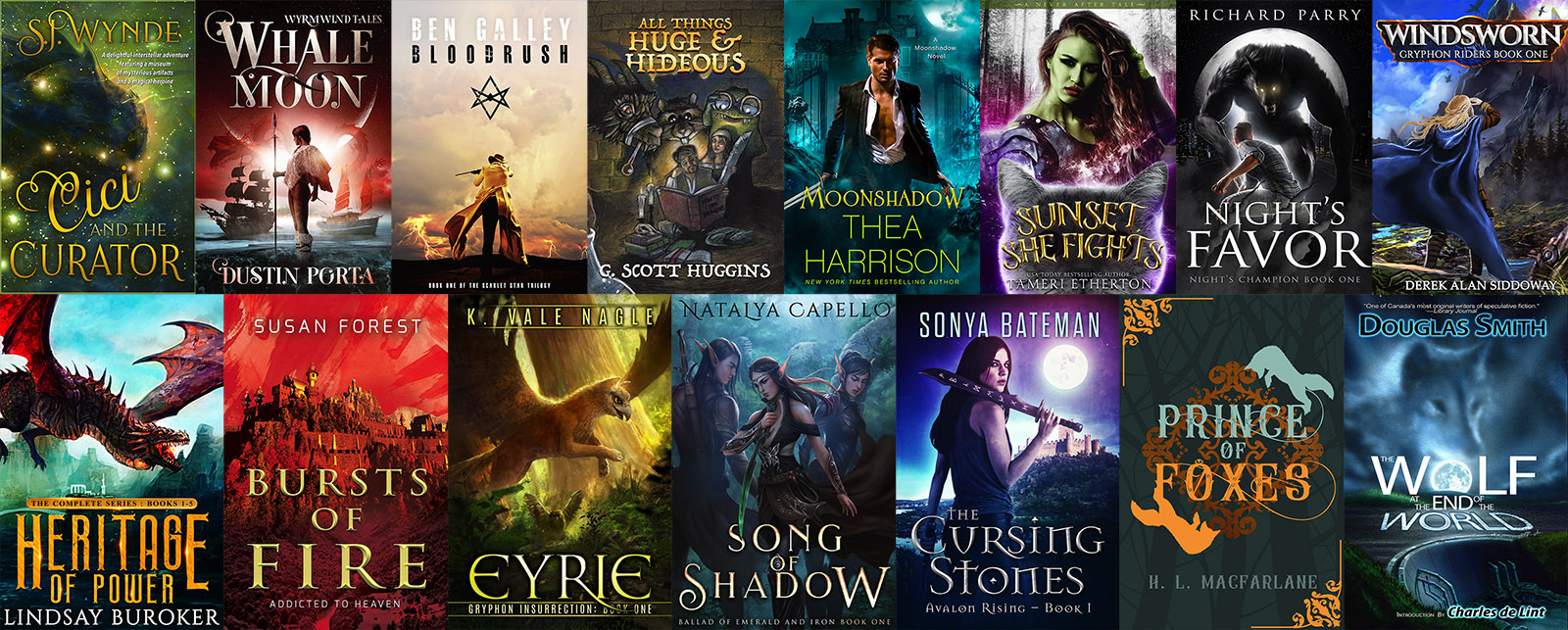 I posted earlier about the excellent Fantastic Beasts ebook bundle sponsored by SFWA and provided by StoryBundle, running to June 18.
I posted earlier about the excellent Fantastic Beasts ebook bundle sponsored by SFWA and provided by StoryBundle, running to June 18.
One of my fellow SFWA members and bundle buddies, Susan Forest, has a novel, Bursts of Fire, in the bundle. Bursts of Fire is the first book in a planned seven-book series, so here's your chance to not only get a great bunch of books from established pros, but start yourself on a brand new series.
Susan Forest is a writer of science fiction, fantasy, and horror, and a four-time Prix Aurora Award finalist for her short fiction. Her epic fantasy, Bursts of Fire, came out in 2019 from Laksa Media, to be followed by Flights of Marigolds this summer.
She has published over 25 short stories which have appeared in Asimov’s Science Fiction, Analog Science Fiction and Fact, Beneath Ceaseless Skies, and Orson Scott Card's Intergalactic Medicine Show, among others. Susan has co-edited three anthologies (Aurora Award-winning Strangers Among Us and The Sum of Us, and finalist, Shades Within Us) on social issue-related themes with Lucas K. Law. Susan is past Secretary for the Science Fiction and Fantasy Writers of America (SFWA).
She loves travel and has been known to dictate novels from the back of her husband's motorcycle. Below is my interview with Susan. Enjoy! And please check out the Fantastic Beasts ebook bundle.
You're an established pro at short fiction, but Burst of Fire is your debut novel. What prompted you to move to the longer form?
I've always considered myself a fantasy novelist and actually began in the long form (check my bottom drawer), but branched into short story writing as a means to hone my craft by working with complete story arcs. The first few I submitted to my critique groups came back with the comment: "This is great! But it's Chapter 1 of a new novel."
Nevertheless I persisted, and started publishing short stories in 2005. I also branched out from fantasy into science fiction, horror, and even comedy. But fantasy, and long form, has always been my first love, so I'm thrilled that Laksa Media took me on for the Addicted to Heaven series.
What was it about the Addicted to Heaven story that attracted you to commit to writing seven books?
I love the world, the people, the ideas, the magic—to me the stories almost seem to exist in some real alternate time and place, and I am privileged to peer into that world and follow the characters as they confront the events in their lives.
Addicted to Heaven is not my only sandbox, though; I have a historical fantasy set in an alternate 1635 on submission at DAW, and have researched a fantasy thriller set in 1942, in northern France. I love all my worlds, probably because I get so immersed in them.
Did you know you were starting a series when you began writing Bursts of Fire?